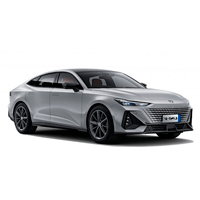
Catalog / Changan
Changan: Decoding the Costs of China's Rising Automotive Star
Changan Automobile, one of China's 'Big Four' state-owned automakers, has a rich history dating back to 1862 when it began as a small workshop producing military supplies. The company's venture into automobile production began in 1959, marking the start of a journey that would see it become a major player in the global automotive industry.
In the early 1980s, Changan took a significant step forward by partnering with Japan's Suzuki to produce mini-trucks. This collaboration helped Changan gain valuable experience in modern automotive manufacturing techniques. The company's first independently developed passenger car, the Changan Star, was launched in 1995, showcasing its growing capabilities.
Changan's commitment to innovation became evident in the 21st century. In 2003, the company established its first overseas R&D center in Turin, Italy, followed by centers in Japan, the UK, and the USA. This global approach to research and development has allowed Changan to incorporate international expertise into its vehicle designs.
One of Changan's most notable achievements came in 2016 when it successfully completed a 2,000 km autonomous drive from Chongqing to Beijing. This feat demonstrated the company's advanced capabilities in autonomous driving technology, positioning it as a leader in this emerging field.
The CS series, launched in 2012 with the CS35 compact SUV, has become one of Changan's most successful product lines. The CS75, introduced in 2014, further solidified Changan's position in the competitive SUV market. These models have been crucial in establishing Changan's reputation for offering feature-rich vehicles at competitive prices.
In recent years, Changan has been at the forefront of China's push towards electric vehicles. The company has pledged to phase out sales of conventional fuel-powered cars by 2025, investing heavily in electric and hybrid technology. Models like the Benni EV have shown Changan's capability to produce affordable yet technologically advanced electric vehicles.
Today, Changan continues to expand its global footprint, with a presence in over 60 countries. The company's focus on 'Intelligent, Low-Carbon, and Shared' mobility solutions aligns with global automotive trends, positioning Changan as a forward-thinking automaker ready to meet the challenges of the future automotive landscape.

